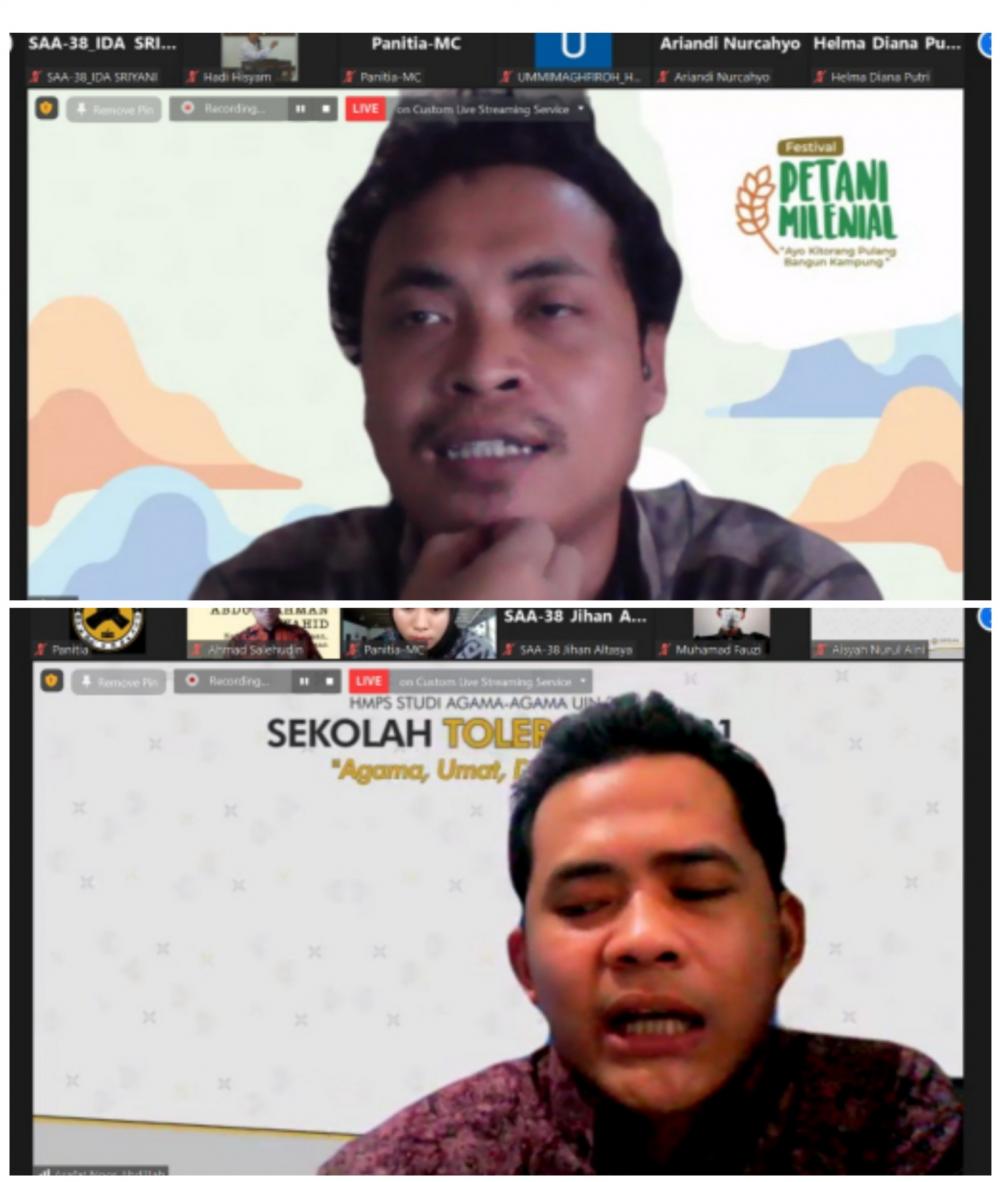Religion and Media Webinar, Religious Studies Students' Efforts to See Religion in the Digital Age

The Student Association of the Study Program (HMPS) of Religious Studies at Sunan Kalijaga State Islamic University, has finished organizing a webinar entitled "Religion and Media: Segregation of Religious Society in the Digital Age" on Saturday (30/10/2021).
The webinar was held through the Zoom Meeting application with more than 80 participants from students and the general public. The event was hosted by Arafat Noor Abdillah, S.Ag., M.Ag. and presented a resource person from a media practitioner who is also the chief editor and owner of beritabaru.co., namely Achmad Dafit, S.Ag.
According to one of the organizers, Faris Zulhelmi, it is very important for Religious Studies students to see the development of religion in the digital era.
"Nowadays, humans cannot be separated from digital media. This has drastically changed the cultural flow of religious society. In the past, if you wanted to learn about religion, you had to meet religious leaders directly, but in the present era, all you have to do is look on Youtube," said Faris on Sunday (30/10/2021).
Such concerns, presumably, are what made HMPS SAA Sunan Kalijaga State Islamic University to hold the webinar. Cyberspace has made it easy for everyone to connect with each other, so the exchange of information has become very fast and extensive. However, the information is not all true. In fact, there are also many people who intend to spread hoax information for certain purposes.
"The circulation of information is very wide and fast in this era. It is even unstoppable. As a result, netizens who are not observant will be easily influenced by hoax information. This is dangerous. Just because someone's account has a lot of followers and often posts about religious lectures, then they are considered a competent religious figure. In fact, this person does not necessarily have high scientific capabilities. It is possible that when making posts, they only copy from Google or other accounts. Therefore, the segregation of religious communities in this digital era is not far from this," said Dafit when explaining his material.
He also explained that when someone opens social media, what the person searches will be recorded by the software so that it will affect the algorithm in his account. If someone often opens a religious lecture, then when scrolling, similar religious lectures will always appear. Usually, those who appear in the post come from a diverse background of religious understanding, and when there is a religious lecture that is considered different, then it will be labeled heretical, wrong, not right. Netizens are not ready for such differences. This will then lead to arguments and even abuse.
In addition, currently the number of likes and followers has become a benchmark for the truth of a content. In fact, when talking about religious content, it is not that easy. There is a long process that must be followed in order to produce a fatwa that is sound and true according to the provisions of the religion itself.
"Social media has a great influence on the climate of religious society. Just because someone often uploads ngaji posts, suddenly that person is called an ustadz or kyai. Even though the sanad of his knowledge is not necessarily clear," said Arafat Noor when giving an introduction to the event.
